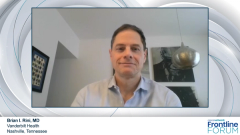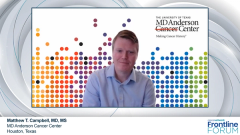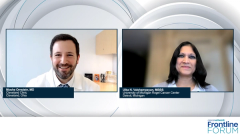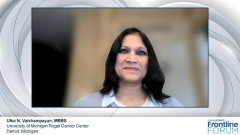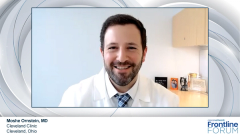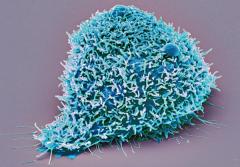
Interpreting Adjuvant Therapy Trial Results in Advanced RCC
Before closing out their discussion on the evolving treatment landscape of advanced renal cell carcinoma, Matthew Campbell, MD, MS, and Brian Rini, MD, highlight clinical trials in the adjuvant setting.
Episodes in this series

Transcript:
Matthew T. Campbell, MD, MS: At ESMO [European Society for Medical Oncology Congress], there were 3 studies that were presented in the adjuvant space, which is, I think, the most of any conference ever for that space. How do the 3 studies flavor for you the positive results that came from the KEYNOTE-564 study with pembrolizumab as adjuvant treatment for renal cell cancer?
Brian I. Rini, MD: As you say we just have this huge bolus of data. The KEYNOTE-564 study was pretty cleanly positive; a hazard ratio for PFS [progression-free survival] of 0.63, an OS [overall survival] hazard ratio well below 1, although not significant yet, certainly looking to balance by toxicity in a small but important subset. Then we get these 3 trials at ESMO; 1 with atezolizumab, 1 with ipilimumab-nivolumab, and 1 with nivolumab, both as neoadjuvant and adjuvant dosing that were really flatly negative, hazard ratios of 0.9 and P [probability]-values that were, in essence, a flip of a coin. We can have long discussions about why each of those was negative based on drug mechanism, ipilimumab-nivolumab inability to get therapy or only having 6 months in the neoadjuvant nivolumab, having a lot of design issues where patients didn't quite get the therapy as expected. I think each one can get explained away and I'm a believer generally in those explanations, but it's to whole-scale discount 3 large phase 3 trials.
I think for me, personally, I do use pembrolizumab in the adjuvant setting. I've always tended to skew it towards the higher clinical risk, understanding the imperfections of clinical risk scoring. I think after ESMO I'm probably even more stringent and usually, what I say is I'm looking for a reason not to give it and my threshold is lower. I'm probably using a little less of it and really in that young, healthy patient with a really high-risk disease, I think it's justified and with everybody else, I'm hesitating. I'm not sure what your practice is, but that's where I landed on that.
Matthew T. Campbell, MD, MS: I share a lot of those same beliefs. I do shared decision-making with patients and discuss the potential toxicity, and the potential benefit. I do describe the 3 negative studies as bringing up some question marks for me but for my patients that are young, healthy, and are extremely anxious about not receiving any therapy I do use a share nomogram to try to help flavor for patients their risk of relapse and how this may play a role, but very much on the same line as you.
I think we're getting very close to the end. I've really enjoyed this and really enjoyed having a chance to discuss this at the IKCS [International Kidney Cancer Symposium] conference with you. Thank you, Dr Brian Rini, for your very insightful discussion and thank you to our audience for watching this Cancer Network®Frontline Forum program on “Recent Advances in the Treatment of Clear Cell and Nonclear Cell Renal Cell Carcinoma.” We hope you found this discussion to be useful and informative.
Transcript edited for clarity.
Newsletter
Stay up to date on recent advances in the multidisciplinary approach to cancer.


